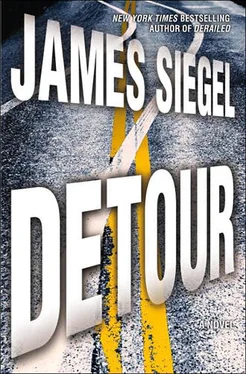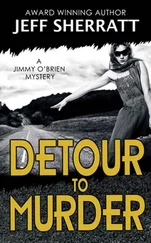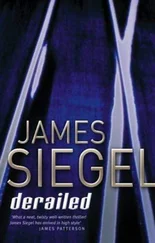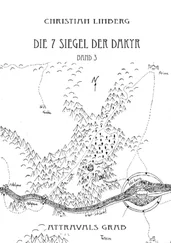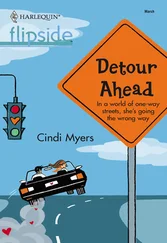Go or stay?
Then it was decided for her.
The field itself was an indistinct blanket of mostly black. Even as her eyes grew accustomed to her moonlit surroundings, it stayed that way. Black.
It had an odor with an almost physical dimension—wet, pasty, and bitter.
Then she understood. The field looked black because that’s what it was.
Black as ash.
It’d been burned to the ground. She could see it now—a tangle of five-foot coca plants reduced to shattered, twisted stumps.
A government patrol had discovered and torched it. Or the USDF. Or the farmer who grew it. Maybe they practiced a kind of slash-and-burn agriculture.
Anyway, it was abandoned. No one would be coming in the morning.
She had to keep moving.
Which way?
It seemed like you should be able to tell from the stars. How? Paul knew this kind of stuff—she’d bought him a telescope for his thirty-fifth birthday that proved virtually useless on the roof of their apartment building. The bright lights of New York City didn’t just blind starry-eyed newcomers—they did a pretty good job on amateur astronomers. Still, more than once Paul had tried to point out one constellation or another to her. She wished she’d paid more attention.
Okay, which direction?
She swung her arm in an arc and decided she’d stop it when it felt right. Like throwing darts blindfolded.
When her arm stopped moving, it was pointing left.
She kissed Joelle on the top of her head and moved back into the jungle.
MORNING WAS COMING FAST.
The light had changed from deep black to charcoal gray. She stopped having to worry that each footstep might land her in quicksand, or into a hole, or on top of some animal’s head.
That was the good part.
The bad part was that she could see some of the screeching, growling, slithering things that she’d only heard up to now. Imagination might be scarier than reality, she decided, but not by much.
What looked like a kind of baboon swung past her by inches, emitting a threatening screech that almost shattered her eardrums. It landed in the crook of a tree branch four feet above her head and shook a vine in her direction. It displayed its teeth—they looked large and frighteningly sharp.
Joanna turned to her right and stumbled through the underbrush, hoping the monkey wouldn’t come after them.
It didn’t.
Later, she saw a tree branch suddenly move right in front of her. Literally get up and begin detaching itself from the trunk of an enormous tree dripping lacy veils of green moss.
Of course it wasn’t a tree branch. It was a snake —clearly enormous and clearly alerted to her presence. It was as thick as her arm, with dead yellow eyes and a black flickering tongue. Scared stiff and trying not to scream, she watched it uncoil for what seemed like minutes.
It slid off into a thick patch of ferns.
With the growing light came the heat. It covered them like a wet towel and left her drenched in sweat. The insects seemed attracted to perspiration; clouds of white gnats descended on her from all directions. She tried swatting them away, but they were as oblivious as New York City pigeons—short of actual gunfire, they weren’t budging.
Then there were the mosquitoes—or their very large cousins. She was a movable feast for them—her bitten arms were covered in red bumps, as if she’d broken out in hives.
Joelle had started crying again and didn’t seem in any mood to stop.
Even to someone unschooled in the lingo of infants, it was obvious that while Joelle might be hot and uncomfortable, it was all about hunger now. For the first time, Joanna wondered if she’d done the right thing. She should’ve planned—stockpiled baby formula. She was guilty of criminal lack of foresight.
Nothing seemed to calm Joelle down; soon Joanna needed calming as well. Fear lodged somewhere in the pit of her stomach and physically constricted her, as if her legs were bound by rubber bands. She was living through one of those dreams of being chased, where you can’t, for the life of you, move.
They were as lost as lost can be.
The jungle had swallowed them whole—eaten them alive. They weren’t going to get out.
She kept walking anyway—something inside her ordering her to lift one leg, then the other. Sheer stubbornness maybe.
Walking songs —front and center.
I’m walking, yes indeed, I’m talking, yes indeed . . .
These boots are made for walking . . .
Walk like a man . . .
She decided she’d keep walking till she couldn’t. That was fair. Go as long as she could and then drop. Fight the good fight.
It was early morning—save for the brief respite by the abandoned coca field, she’d been walking six straight hours.
Then she smelled it.
She stopped dead, closed her eyes, crossed her fingers.
Sniff.
She smelled it again.
Sausage.
Was that possible?
Hot, sizzling, aromatic sausage ?
Maybe it was some kind of plant? An animal? A jungle smell she was simply unfamiliar with?
She sniffed the air again, taking her time. No. It was clear as day. Someone was cooking breakfast.
Her heart leaped, soared, did pirouettes. She stopped rocking Joelle and brought her up under her chin.
“We made it. We’re going home. We’re free.”
She couldn’t see anyone—the same panorama of trees, vines, stumps, and ferns. A massive dew-laden spiderweb refracted the sun into sparkling carats of fire.
She followed the smell.
Left, then right, then straight ahead.
Nose, don’t fail me now.
The jungle seemed to thin—not all at once, but slowly, inexorably. The air lost its heaviness, her lungs eased, the insects drifted off.
The smell intensified, tickling her taste buds, reeling her in.
Now she could see patches of empty space through the trees.
She quickened her pace—if she’d been wearing sneakers instead of half-inch heels, she would’ve broken into a run.
Even Joelle seemed to sense a change in the air. Her crying lessened, then stopped altogether. She emitted a series of gurgles and hoarse sniffles.
Joanna skirted vegetation that had clearly been stepped on. Someone had walked here, snapping stems, grinding broad green fronds into the dirt. She thought she could make out an actual footprint.
The smell was intoxicating. She was nearly drunk on it. She lurched past a massive banyan tree and was suddenly staring into thin air.
A lone figure was standing there, backlit by a sun the color of marmalade.
The figure was saying something to her.
Joanna dropped to the ground, Joelle nestled in her ams. She hung her head, rocked back and forth, began weeping.
“No,” she whispered to herself, to Joelle, to the person standing in the clearing, maybe to God. “No . . .”
The clearing sloped uphill to a ridge where a modest farmhouse stood.
It had a smoking chimney, lime-green shutters, and a dilapidated back pen holding roosters, goats, and cows.
It was the first time she’d seen it from the outside.
“Quick,” Galina said, “back to the room before they see you.”
THIRTY-FIVE
Galina snuck her back into the house. Not without being detected. The Indian girl with long black hair came out of the bathroom and nearly bumped into them. Galina had an explanation.
She fainted, Galina told her in Spanish, she needed some air.
The girl nodded, seemingly disinterested.
Once Galina ushered Joanna back into the room, once she closed the door and sat down, she said, “It was stupid. You don’t know the jungle.” She took Joelle from her exhausted arms, changed and fed her. “You would’ve died out there.”
Читать дальше
